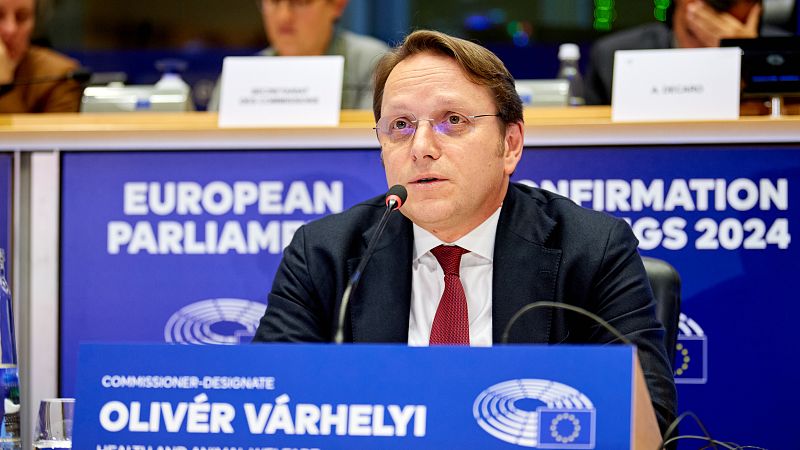MEPs strip Hungarian Commissioner of key health competencies

An assessment of Várhelyi’s suitability for taking over the health and animal welfare portfolio in the next EU executive arm arrived on Wednesday evening (20 November), two weeks after his three-hour hearing at the European Parliament.
At the time, MEPs expressed dissatisfaction with his answers and subsequently postponed their decision, seeking further clarification in writing.
During the hearing, Várhelyi argued that abortion is primarily a constitutional and human rights issue rather than a health matter, asserting that it falls under the jurisdiction of individual EU member states.
This statement sparked criticism, with MEPs contending that reproductive rights are integral to the EU’s health policy framework.
In addition to sexual and reproductive rights, MEPs decided to remove Várhelyi’s oversight of the European Commission’s service for health preparedness (DG HERA), which was established during the COVID-19 pandemic to address future health crises and prevent a repeat of the mistakes made during that time.
However, Várhelyi retains control over food and animal welfare competencies, which were also under scrutiny, as well as other health-related areas such as pharmaceuticals, medical devices and tobacco legislation.
MEPs have prepared a formal request to European Commission President Ursula von der Leyen, urging her to revise Várhelyi’s mission letter accordingly and reallocate those competencies.
The likely candidate to assume these responsibilities is Belgian Commissioner-designate Hadja Lahbib, who is currently slated to oversee crisis management.
If appointed, Lahbib, from the liberal Renew Europe group, would gain significant influence in health-related crisis management, further enhancing her portfolio.
Várhelyi’s reduced responsibilities cast doubt on his ability to lead the forthcoming Critical Medicines Act, a key legislative initiative for the next term.
Speaking to Euronews after the vote, liberal MEP Vlad Voiculescu pointed out that the Act requires collaboration between health preparedness services and the broader health services in the Commission, which fall under Várhelyi’s purview.
“Preparedness and sexual rights would be in good hands with Hadja Lahbib,” Voiculescu said, describing her as the "right person" for the job and aligning more closely with EU values compared to Várhelyi’s Fidesz party.
For German socialist MEP Tiemo Wölken, it was important that “a right-wing extremist like Várhelyi” will have no say on sexual and reproductive health rights and that an entire directorate-general was removed from his control.
“Várhelyi, as a close ally of Orbán, remains far from an ideal candidate,” he said, pointing out that the Hungarian government has the right to nominate its candidate to the Commission but that European lawmakers can contain their influence.
Spanish far-right MEP Hermann Tertsch criticised the decision to reduce Várhelyi's portfolio, accusing the European People's Party (EPP) of aligning with left-wing policies to marginalise the Hungarian Commissioner.
“This is another instance of the EPP pandering to the left,” he lamented, while suggesting the decision reflects broader political dynamics within the European Parliament.
The assessment of Várhelyi was included in the broader package deal over the final confirmation of the next EU executive secured by the three main political groups in the European Parliament—the centre-right wing European People’s Party (EPP), the socialists (S&D), and the liberals (Renew Europe).
Under the Parliament’s rules, committee chairs and coordinators meet behind closed doors after a hearing to vote on whether they think commissioner candidates are up to the job.
Today

